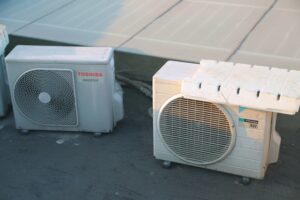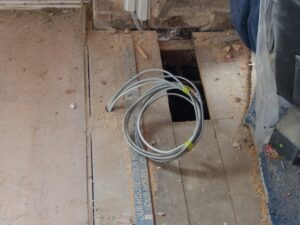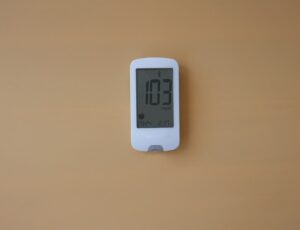Dealing with a tankless water heater that isn’t working properly can be incredibly frustrating, especially when you rely on it for hot water at the tap.
Have you ever found yourself waiting for hot water, only to be left in the cold?
Getting your tankless water heater repaired quickly is key to ensuring you always have access to hot water when you need it. While these systems are known for their energy efficiency and space-saving designs, like any appliance, they occasionally need repairs.
When it comes to choosing the right repair service, you want a team you can rely on. At Excel Mechanical, we specialize in diagnosing and fixing issues with tankless water heaters efficiently.
Wouldn’t it be great to have a team of experts who ensure your system runs smoothly without you having to worry?
Whether you’re managing a home or business, we’re here to provide the expert services that will get your water heater back on track fast.
In this blog, you will learn:
- How to identify common issues with tankless water heaters
- Key troubleshooting tips for quick fixes
- Best maintenance practices to keep your system in top condition
Let’s dive in and explore the essential tips you need for efficient tankless water heater repairs.
Understanding Tankless Water Heaters
Tankless water heaters offer several advantages over traditional tank systems, including energy efficiency and space-saving designs. They heat water on demand, provide consistent hot water, and come in various configurations to suit different needs.
How Tankless Water Heaters Work
Tankless water heaters heat water directly as it flows through the unit.
Unlike traditional heaters, which store hot water in a tank, these units use gas burners or electric coils to heat water instantly. When you turn on the hot water tap, cold water travels through the pipes and into the unit, where it is rapidly heated and delivered to you immediately.
This on-demand process eliminates standby heat loss, common with tank-style heaters. Because of this, tankless systems can be up to 34% more energy-efficient than traditional models.
Furthermore, tankless heaters are usually compact and can be mounted on a wall, freeing up valuable space in your home or business.
Benefits of Tankless Water Heaters
One key benefit of tankless water heaters is their ability to provide endless hot water.
Since they heat water as needed, you won’t run out even during long showers or when multiple appliances are used. This makes them ideal for busy households or businesses with high hot water demand.
Tankless systems also typically have a longer lifespan, lasting about 10 to 20 years with proper maintenance. This longevity adds to their value over time. Additionally, their compact size helps save space, making them a practical solution for small areas.
Tankless water heaters can lower utility bills because they use less energy. They offer significant savings and efficiency, making them a smart investment.
Common Tankless Water Heater Configurations
Tankless water heaters come in different configurations to suit various needs. You can choose between electric and gas-powered units, each with its advantages.
- Electric models are easier to install and often more energy-efficient for small households.
- On the other hand, gas-powered units can provide higher flow rates, making them suitable for larger homes or commercial settings.
These heaters can be installed indoors or outdoors, depending on your preference and space constraints. Each configuration affects performance and efficiency, so it’s crucial to select the right one for your specific situation.
Troubleshooting Common Issues
Dealing with issues in a tankless water heater can be frustrating, especially when you rely on a constant hot water supply. Understanding what’s wrong is crucial for effective troubleshooting. Here’s a look at key issues you might face.
No Hot Water Output
Check the power supply if your tankless water heater isn’t producing hot water.
Ensure the unit is plugged in and the circuit breaker hasn’t tripped. Then, inspect the thermostat settings to ensure they’re correct and adjust them if necessary.
Another cause could be a closed water valve, so inspect all the valves leading to your unit to ensure they are fully open. Occasionally, a clogged inlet filter may prevent the heater from functioning. Clean or replace it as needed to restore hot water.
If basic troubleshooting doesn’t help, consider calling a professional to ensure reliable repairs and expert guidance.
Inconsistent Water Temperature
Inconsistent temperatures often result from fluctuating water pressure or gas supply.
Begin by checking if multiple outlets demand hot water simultaneously, which might affect performance. Reduce the load by turning off unused fixtures and see if the issue is resolved.
Look for any blockages in the system that might obstruct water flow. Ensure your unit’s inlet filter is clear. Also, inspect the gas line to confirm there’s a consistent supply.
If these steps don’t resolve the problem, the unit might have an internal issue.
System Overload and Shutdown
Your heater may shut down suddenly if the system is overloaded.
This often happens when several fixtures are used simultaneously, exceeding the system’s capacity. To avoid this, try using fewer hot water outlets at one time. You can also stagger usage to ensure the heater isn’t overwhelmed.
Interruptions might occur due to a fault in the sensor or the gas supply. Check for any error codes displayed on the unit and refer to the manual to understand their meanings. Regular maintenance, like flushing the heater to remove mineral buildup, helps prevent these issues.
Professional assistance ensures your heater runs smoothly without unexpected interruptions when in doubt.
Maintenance Tips and Best Practices
Proper care of your tankless water heater ensures it runs efficiently and lasts longer. Regular maintenance can help avoid unexpected repairs and costly replacements.
Follow these tips to keep your water heater in top condition.
Routine Cleaning Recommendations
Cleaning your tankless water heater regularly is crucial for optimal performance.
- Begin by turning off the power and water supply.
- Remove the cover and gently clean any visible dust or debris with a soft cloth.
- Use a mild detergent to clean the heat exchanger surface, but be careful not to damage the components.
- Flush the heater to remove mineral deposits that can build up over time.
- Use a descaling solution or white vinegar. A submersible pump circulates the solution through the heater for about 45 minutes.
- Reassemble the unit and restore the power and water supply.
This process, done annually, keeps the system efficient.
Water Filtration and Treatment
Hard water can lead to mineral buildup in your heater, reducing efficiency.
Installing a water softener or filtration system can help manage this issue. These systems reduce the concentration of minerals such as calcium and magnesium that are common in hard water.
Ensure any filters used are compatible with your tankless water heater model. Replace them according to manufacturer guidelines to maintain effectiveness. Regular water quality checks can alert you to changes that may need attention.
Proper filtration safeguards your heater from damage and prolongs its life.
Preventative Maintenance Schedule
Creating a preventative maintenance schedule can help catch minor issues before they become major problems.
We recommend scheduling professional inspections at least once a year. A trained technician can check for leaks, inspect the venting system, and ensure the electrical components are in good condition.
Regular upkeep helps optimize performance and reduces the risk of unexpected breakdowns. By partnering with experts, you ensure your system receives the attention it needs for residential and commercial use.
Our team at Excel Mechanical is dedicated to delivering exceptional quality and value, tailoring solutions to your specific needs and budget.
Repair Techniques
Addressing common issues like worn-out heating elements, ignition problems, and corrosion is important when working with tankless water heaters. Knowing how to tackle these problems can keep your water heater running smoothly.
Replacing Heating Elements
Heating elements in tankless water heaters can wear out over time.
- First, turn off the power and water supply to prevent accidents.
- Once the power is off, remove the panel covering the heating element.
- Carefully disconnect the wiring before removing the faulty element.
- Install the new heating element and reconnect the wiring, ensuring it is tight and secure.
- Finally, replace the cover and restore power and water supply.
Regularly checking your heating elements can help prevent further complications.
Fixing Ignition Failure
Ignition failure can prevent your water heater from turning on.
- Start by checking the gas supply and ensuring it is on.
- An obstructed burner or dirty igniter might also cause issues. Inspect these parts and clean them if necessary.
- If the problem persists, consider examining the ignition sensor. If it’s faulty, this part might need adjusting or replacing.
Proper maintenance by professionals can extend the life of your tankless water heater and improve its performance.
Dealing with Corrosion and Leakages
Corrosion and leaks are serious issues but can often be fixed.
- Begin by inspecting the heater regularly for any signs of rust.
- If you find any, clean the unit using a corrosion-resistant cleaner.
- For leakages, check all fittings and connections.
- Replacing worn-out seals or gaskets can prevent further leaks. In severe cases, pipe sections might need to be replaced.
Professional Repair Versus DIY
Deciding between professional repair and DIY for tankless water heaters involves considering the complexity of the issue, your safety, and the necessary tools. Professionals offer the expertise and reliability you need, while DIY can be more cost-effective for simple fixes.
When to Call a Professional
If you notice your tankless water heater isn’t providing hot water, making strange noises, or frequently cycling, it’s time to consider expert help. Some problems, like gas leaks or malfunctioning components, need professional skills.
Choosing a reliable company like Excel Mechanical ensures top-quality service focusing on safety and long-term solutions. Our experienced team knows how to handle complex repairs, providing the best HVAC and plumbing solutions tailored to your needs and budget.
DIY Repair Safety Tips
Safety must come first when doing DIY repairs.
- Always cut power or gas before starting any work.
- Identify clear and simple issues, like cleaning clogged filters or descaling the unit.
- Wear protective gear, like gloves and goggles, to prevent injury.
- Make sure to follow the manufacturer’s instructions closely.
- If you feel unsure or uncomfortable at any point, it’s best to reach out to a professional.
Tools and Resources for Home Repairs
Having the right tools is crucial for successful DIY repairs.
You may need a screwdriver set, a multimeter for electrical checks, and pipe wrenches or pliers for plumbing tasks. Descaling kits help maintain your heater.
Use online resources, such as tutorial videos or forums, to better understand the process. Always ensure your tools are in good condition and suitable for the job.
Remember, while DIY can save money on minor fixes, knowing your limits is essential.
Cost Considerations
Several factors influence the total expenses of repairing a tankless water heater. Knowing these factors can help you prepare financially and save money. Regular maintenance can also be crucial in reducing repair costs over time.
Factors Affecting Repair Costs
Repair costs can vary widely depending on the specific issue with your tankless water heater.
Simple problems, like replacing a faulty sensor, are usually less expensive. In contrast, more complex problems, such as those involving electrical or gas components, can be costly.
- Brand and Model: Some models have more expensive or harder-to-find parts, which can increase repair costs.
- Age of the Unit: Older units might require more work or replacement parts no longer in standard stock, resulting in higher costs.
- Geographic Location: Prices for labor and parts can differ based on your location. Urban areas might have higher labor costs than rural regions.
Estimating Repair Expenses
To get a reasonable estimate, consider the specific parts and labor involved.
A minor repair may only cost a few hundred dollars, while more significant issues could run into the thousands. Labor charges often depend on the extent of the repair and the expertise required.
A professional service like Excel Mechanical can ensure accurate assessments and reasonable costs. Our certified technicians assess the problem efficiently, ensuring you receive the best value.
Here’s a general breakdown of typical repair costs:
- Minor repairs: $100 – $300
- Moderate repairs: $300 – $600
- Major repairs: Over $600
Reducing Long-Term Costs through Maintenance
Regular maintenance is essential for keeping repair costs low.
Flushing the system to remove mineral buildup helps maintain efficiency and prevents costly repairs. Regular checks can identify and address minor problems before they become significant issues.
Scheduling regular maintenance with a professional service provides peace of mind. This maintenance not only extends the lifespan of your unit but also decreases the likelihood of expensive repairs, saving you money in the long run.
Replacement vs. Repair Decision Making
Deciding whether to repair or replace your tankless water heater involves several factors. Consider the costs and benefits, how long the unit will last, and how new technology might improve performance.
These elements can guide your decision and help ensure your choice meets your current needs.
Assessing the Costs and Benefits
Comparing the costs of repair versus replacement is crucial.
Repairing might seem cheaper initially, but frequent fixes can add up. Newer models often offer better efficiency, potentially lowering your utility bills. A tankless water heater could save energy costs, making replacement a sound investment over time.
Factor in rebates or incentives for installing new systems. These can offset initial expenses. Weigh these financial considerations against repair costs to make an informed decision.
Longevity and Performance Considerations
Evaluate your heater’s age and current performance.
Tankless systems generally last longer than traditional heaters. If your current unit is nearing the end of its lifespan, replacement may be wiser. With a lifespan of over 20 years, a new tankless heater can offer long-term value.
Consider how well your current system meets your household’s demands. If the hot water supply is inconsistent, opting for a new model might solve these issues.
Impact of Technological Advancements
Tankless water heaters have seen significant technological improvements.
Newer models have enhanced features such as better energy efficiency and digital controls. These advancements can provide more consistent hot water and reduce energy usage.
Installing a modern unit can also increase home value, appealing to buyers interested in energy-efficient homes.
Frequently Asked Questions
We know that dealing with tankless water heater issues can be overwhelming. What’s going wrong with your system? How can you fix it without causing more problems? Let’s address some of the most common questions about tankless water heaters and help you navigate these repairs with confidence.
How much does it typically cost to repair a tankless water heater?
Repair costs for a tankless water heater vary widely depending on the issue. Basic repairs might be less expensive, while more complex repairs involving internal components could cost more.
What are the signs that my tankless water heater needs repairs?
If your tankless water heater is not producing hot water, you might hear unusual noises or experience fluctuations in water temperature. These could be signs that repairs are needed.
What is the typical lifespan of a tankless water heater?
A well-maintained tankless water heater can last 20 years or more. Regular care and quick attention to repairs can help extend its lifespan.
What should I do if my tankless water heater is not providing hot water?
First, check if the breaker has tripped or if there’s a problem with the gas supply. If everything seems fine, contact a professional like Excel Mechanical for a thorough inspection.
How often should a tankless water heater receive maintenance?
For peak efficiency, maintenance is recommended at least once a year. This helps ensure the system performs well and detects any potential issues early.
Are there common issues that can lead to a tankless water heater needing repairs?
Some common issues include mineral buildup, clogged air intake, and system overload. Addressing these problems promptly can prevent further damage. Expert service from Excel Mechanical can help you maintain your tankless system for residential and commercial needs.




